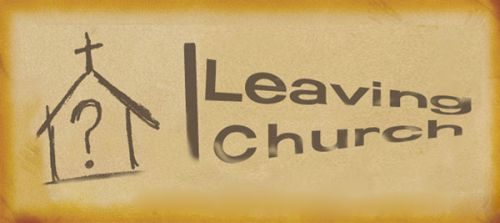Confessions of an Ex-Pastor
Recently I was asked to contribute to an online magazine for Ex-Pastors; while I still work for the church, I happen to find myself in that category. The following is my “confession” that I submitted (and I am sure will be adjusted and edited beyond recognition).
 About 8 months ago, after having been a pastor for over 22 years, my denomination asked me to resign my church, and I suddenly became an ex-pastor.
About 8 months ago, after having been a pastor for over 22 years, my denomination asked me to resign my church, and I suddenly became an ex-pastor.
The journey has not been easy; at times I’ve had a difficult time finding my spiritual equilibrium. My wife and I want to raise our children in a healthy and effective church, so we painfully are starting to search for a suitable congregation that will be a vibrant and challenging, but non-threatening, community for our three young kids to plug into and grow in. My job will only permit me to show up about once a month, but we think it’s best for all of us to commit to life within a specific body of the imperfect people of God.
The above is my true story; a variation of this has been told many times and by many people. The circumstances may be different, but the struggle is similar. When a long-time pastor stops being a pastor, life changes.
The journey is always unique; my particular path didn’t involve a church split, somebody’s failure, or a ministry-ending circumstance. I was asked to work for my denomination as a Supervisor of about 140 other churches. This was a positive event for me, but I wasn’t prepared for the personally challenging season I would have when stepping out of the pastorate.
Pastoring, I realized, was the only really meaningful work I had ever done in my adult life. Though I have always taught against being defined by our ministry assignment, I was largely unaware how much being a pastor of a church had influenced my identity. My wife and I were shepherds of a flock, and we were involved in the progressive discipleship of people we loved and knew intimately.
Week after week, I had wrestled with the Word of God, looking for the sermon that would give some prophetic direction and encouragement to the congregation. Season after season I had prepared for the next big event or holiday that would prove meaningful to our church. Month after month I had trained, discipled, and administrated; and I had prayed over the mystery that God was unfolding among our unique local congregation.
I miss a lot about pastoring. I miss the preaching, because while I still preach, it’s often a recycled sermon (that I work to freshen up) that I spoke the week before to another congregation. Anyone can be a good guest speaker; good congregational preaching, I believe, is an act that is meant to move people, little by little, in a direction towards maturity in the Lord.
And I miss the holidays! This year at Christmas I had no responsibilities, and my wife couldn’t figure out why I was so grumpy! Honestly—and I didn’t realize this until later—it was because for the first time in over two decades I wasn’t declaring the wonder of the incarnation to a congregation. I probably should have found a homeless shelter and quietly expressed the gospel story through my actions, but it just wasn’t in me this year, and I struggled through understanding my new place.
Easter had been the “Superbowl” of my life for over 20 years; like a kid getting ready for his first trip to Disneyland, I could hardly sleep the night before. This year I could barely pull myself out of bed on resurrection morning. It is true, “He IS Risen, Indeed”, but this year I wouldn’t be the one initiating that ancient tradition by calling out “Christ Is Risen” to the congregation; I would be part of the sea of people answering the call.
I miss the little things. The other day I realized that I would no longer be transitioning a service, or leading communion, or receiving an offering, or blessing a congregation at dismissal, or baptizing new believers, or dedicating babies. These regular and sometimes mundane parts of congregational life are things that give rhythm to our communities; they are the things that provide “pace” to pastors. While I was in the middle of it, these sometimes seemed like a chore, but now I think about them and realize how vital they were—both to my church and to me.
But though I still struggle, I’ve come to live the reality, and not just teach it, that a ministry assignment should not define a person. Ministry is something all believers do; assignments are by their very nature transitional. Sometimes roles change because of job transition and sometimes they change because of a crisis. Whatever the case, God’s plan is still to work in and through us to express His Kingdom in the world.
Some of you miss pastoring; others are just glad that season of your life is over. But all of us are called to engage the message and ministry of reconciliation (2 Corinthians 5). That assignment isn’t attached to a job description, title or paycheck, but is part of a calling and identity that all believers have the privilege to embrace.
